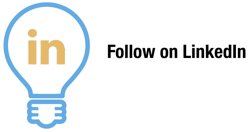Own your relationships in 2020.
This is the foundation of our strategy for 2020 and something we’ve been shouting from the rooftops to any marketer who will listen. We already know that social media has evolved to pay-to-play. That’s beyond debate at this point; Facebook and Instagram lead the charge of “pay us to talk to people who want to talk with you”. And in articles by reputable folks like Rand Fishkin, keen observers note that search engines are showing more and more “zero-click” results, diverting traffic away from websites and keeping users on-engine (where more ads can be shown).
It feels like the big marketing technology companies have really turned the screws on us, doesn’t it? But “something for nothing” was never a sustainable strategy for anyone. The free ride, while not over, is certainly harder and harder to squeeze results from. In an economic downturn, which we all know is coming, the onus of increased profitability on big technology companies will demand even faster, more aggressive monetization of us, the marketers.
What’s the alternative? Two strategies must be prominent in your 2020 marketing plan.
- Build your brand. Your brand is your share of mind in your audience. How much mindshare do you have? When people think of problems in their industry, do they think of you? Your 2020 strategy should be long on brand building and brand measurement, especially branded organic search. I firmly believe branded organic search should be one of digital marketing’s most important KPIs. It is by far the most important KPI for public relations, brand advertising, and anything else brand-related. How many searches happen each month for you by name – and are you the top result for all of them? If not, that’s an urgent crisis you must fix immediately.
- Focus on owned media. What do you own? You own your email list, your website, your text messaging list, and any private community (such as our Analytics for Marketers Slack, which you should join for free). Build those properties. Invest in those properties. If you have a choice on how to spend a dollar (or a Euro, or your currency of choice), spend at least 51% of it on things that are yours. (and remember at least 10% of it should go to measurement). Deliver insanely great value on your owned media channels. Make them places people want to spend time.
In addition to countering the effects of pay-to-play, investing in what you own is your best bet for resilience in said economic downturn. If you’re all-in on someone else’s property – like Facebook – they can up your “rent” as aggressively as they need to in order to make their profitability numbers, at your expense. If you’re all-in on you, then you’re in control of how much and how often you can ask for your audience’s help.
Go all-in on you in 2020.

This week’s Bright Idea is our 9C Community Management Framework. As we talk about the importance of what you own and private communities, it’s important to have a strategy for managing your community. This framework gives you the overall plan for making a community valuable.
Download the 9C Community Management Framework PDF for free, no form fill required.

In the rear view this week, we look at Facebook over the last 30 days. What’s the word on Facebook’s relevance and importance to brands? When we look at the numbers, we find ourselves in a bit of shock. Here’s what we found for 2,307 brands on Facebook.
- Brands published 486,035 posts in the last 30 days. Of those, 7,292 were paid posts and 478,743 were unpaid.
- The median engagement rate for unpaid posts was 0.026%. To put that in context, 26 out of 100,000 people engaged with unpaid brand content.
- The median engagement rate for paid posts was 0.015%. That’s 15 out of 100,000 people engaging with paid brand content.
- The median number of reactions for unpaid posts was 89; the median for paid posts was 139.
The takeaway: these engagement numbers are appallingly low, and a clear sign that brands’ marketing efforts on Facebook are largely wasted. If you’re in a major metro area, you could easily crush those numbers by standing outside your office on the sidewalk, handing out 1 brochure an hour and beat the engagement numbers.
When it comes to Facebook, your strategy should be to run highly-targeted ads to niche audiences you want to capture, and get those audiences to your owned properties as quickly as possible. Anything else is a waste of time and resources.
Methodology: Trust Insights used Facebook’s Crowdtangle software to extract posts from 2,307 brand accounts on Facebook in the last 30 days. The brand list was provided by Facebook and augmented by Trust Insights. The date of the study period is October 17, 2019 – November 17, 2019. The date of extraction is November 20, 2019. Posts were de-duped by post URL. Engagement rate is defined as (reactions + comments + shares) / size of page follower count at posting.

- {PODCAST} In-Ear Insights: The Marketing Mailbag
- Marketing Analytics, Data Science and Leadership via November 18, 2019 Week In Review
- Attribution Part 3: Applying Machine Learning to Attribution
- Google Analytics Channel Traffic Forecast
- 5 Practical Applications of AI For Marketing Technology
- AI and SEO in the Post-BERT World: What Marketers Need to Know

Shiny Objects is a roundup of the best content you and others have written and shared in the last week.
Social Media Marketing
- How marketers use social media FOMO to sell you things, and how you can keep your money
- The 10 Biggest Competitors Of Facebook
- Pinterest Updates Lens Feature to Improve Visual Search
Media and Content
- 10 Technology Components of Intelligent Content Programs
- 11 best email newsletter tools
- MIT Researchers Use Supercomputer to Analyze Web Traffic Across Entire Internet
Tools, Machine Learning, and AI
- Can Artificial Intelligence replace the 35,000 humans at Facebook? / Digital Information World
- Amazon Saw 15-Fold Jump In Forecast Accuracy With Deep Learning And Other AI Stats
- How AI and ML are transforming digital marketing together
Analytics, Stats, and Data Science
- Why Proper Data Management Is As Important As Using ‘Fresh’ Data
- Data Science for Business Leaders
- How to Visualize Data in Python (and R)
SEO, Google, and Paid Media
- Google reportedly collects health data on millions of Americans without informing patients
- Why the Voice Revolution Will Lead to a Boom in Voice Commerce
- SEM vs. SEO vs. PPC Defined: What’s the Difference?
Business and Leadership
- Gartners Top 10 Strategic Technology Trends For 2020: The Good, The Obvious, The Renamed & the Missing
- Have You Met These 3 Crucial CCPA Compliance Challenges?
- Geena Davis Unveils Partnership With Disney to Spellcheck Scripts for Gender Bias
Join the Club
Are you a member of our free, private Slack group, Analytics for Marketers? Join 500 like-minded marketers who care about data and measuring their success. Membership is free – join today.
Upcoming Events
Where can you find us in person?
- Agorapulse Social Summit, November 2020, Online – open now!
- MarketingProfs Virtual Summit, December 2020, Online
- Social Media Marketing World, March 2020, San Diego, CA
- HELLO Conference, April 2020, New Jersey
- Women in Analytics, June 2020, Columbus, OH
- MAICON 2020, July 2020, Cleveland, OH
Going to a conference we should know about? Reach out!
FTC Disclosure: Events with links have purchased sponsorships in this newsletter and as a result, Trust Insights receives financial compensation for promoting them.
In Your Ears
Would you rather listen to our content? Follow the Trust Insights show, In-Ear Insights in the podcast listening software of your choice:
- In-Ear Insights on iTunes/Apple
- In-Ear Insights on Google Podcasts
- In-Ear Insights on all other podcasting software
Social follow buttons
Make sure you don’t miss a thing! Follow Trust Insights on the social channels of your choice:
Conclusion
Thanks for subscribing and supporting us. Let us know if you want to see something different or have any feedback for us!














